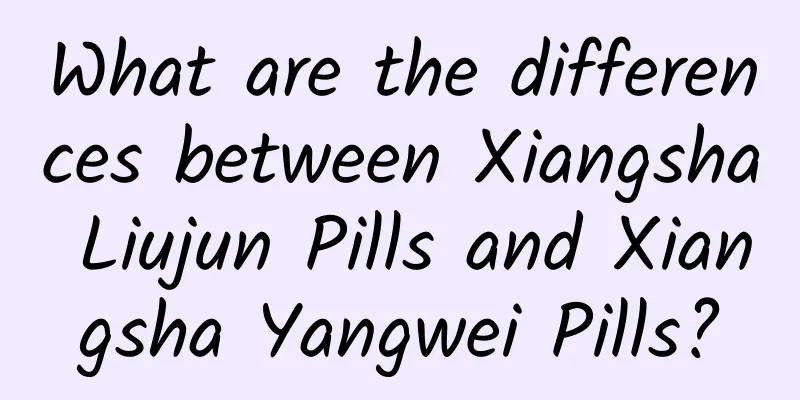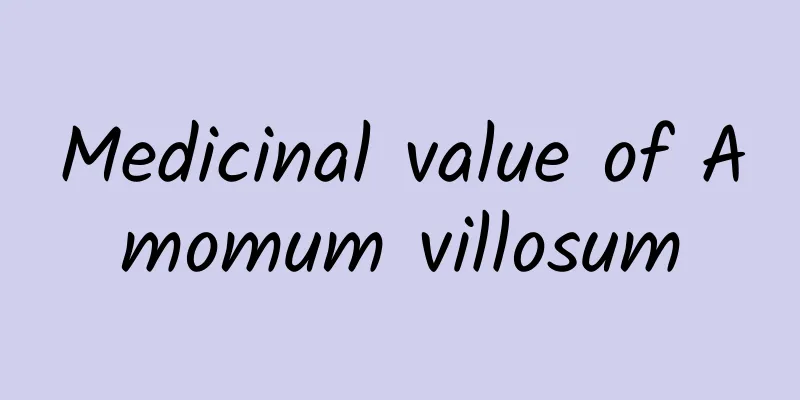What are the contraindications of Chinese medicine for regulating menstruation?

|
Menstrual irregularities occur in many female friends, which not only has adverse effects on their physiology, but also seriously troubles their daily work and life. As a result, some female friends use Chinese medicine for conditioning without authorization, but the effect is the opposite. So, why does menstruation become irregular after taking Chinese medicine for regulating menstruation? What are the contraindications of taking Chinese medicine for regulating menstruation? I believe that many people are not particularly clear about it and want to know the answer, so let me explain it to you below. 1. For those who have early menstruation due to blood heat, be sure to avoid eating spicy foods, onions, garlic, ginger and other irritating foods. These foods may offset the effects of Chinese medicine and even cause more negative effects. It is better not to take Chinese medicine. If this is the case, then the effectiveness of traditional Chinese medicine will not be fully exerted, which would be a waste of time and effort. 2. For those who have abnormal menstruation due to deficiency and cold, they usually feel cold in the body, so they should avoid eating raw and cold fruits, sour, cold, bitter and spicy foods. Therefore, when taking medicines for regulating menstruation, do not eat these foods, no matter how little. You must do this during the period of taking the medicine so that it can truly play a regulating role. 3. Seafood is a taboo for any Chinese medicine, so seafood cannot be consumed when taking Chinese medicine for regulating menstruation. Everyone should learn to control themselves and learn to avoid seafood. 4. All patients with gynecological diseases must avoid eating raw and cold foods, especially icy foods. Generally, patients taking traditional Chinese medicine for menstruation regulation should avoid eating radishes and celery, and spicy foods. If you have cysts or fibroids, do not eat seafood and soy products. Do not eat protein or foods containing hormones. Patients with fallopian tube diseases should not eat seafood or lake crabs. Pregnant women should avoid eating hot foods such as lake crabs, soft-shelled turtles, mutton, lychees and longans. Patients with cysts should avoid strenuous exercise to prevent torsion of the cyst. Don't drink strong tea while taking medicine. For those who have early menstruation due to blood heat, they must be careful not to eat spicy foods, onions, garlic, ginger and other irritating foods. These foods may offset the effects of Chinese medicine and even cause more negative effects. It is better not to take Chinese medicine. If this is the case, then the effectiveness of traditional Chinese medicine will not be fully exerted, which would be a waste of time and effort. For those who have abnormal menstruation due to deficiency and cold, they usually feel cold in the body, so they should avoid eating raw and cold fruits, sour, cold, bitter and spicy foods. Therefore, when taking medicines for regulating menstruation, do not eat these foods, no matter how little. You must do this during the period of taking the medicine so that it can truly play a regulating role. Seafood is a taboo for any Chinese medicine, so seafood cannot be consumed when taking Chinese medicine for regulating menstruation. Everyone should learn to control themselves and learn to avoid seafood. All patients with gynecological diseases must avoid eating raw and cold foods, especially icy foods. Generally, patients taking Chinese medicine for menstruation regulation should avoid eating radishes and celery, and spicy foods. If you have cysts or fibroids, do not eat seafood and soy products. Do not eat protein or foods containing hormones. Patients with fallopian tube diseases should not eat seafood or lake crabs. Pregnant women should avoid eating hot foods such as lake crabs, soft-shelled turtles, mutton, lychees and longans. Patients with cysts should avoid strenuous exercise to prevent torsion of the cyst. Don't drink strong tea while taking medicine. Through the above understanding, I believe everyone can clearly understand the contraindications of taking Chinese medicine for regulating menstruation. In addition, we would like to remind everyone that when taking warm tonic Chinese medicine, you need to avoid eating mung beans and radishes; do not drink tea, because mung beans, radishes, and tea are all cool in nature and can reduce the warming effect of the medicine. The time to take Chinese medicine should be determined according to the condition and the nature of the medicine. The principle is to maximize the preventive and therapeutic effects of drugs and reduce adverse reactions. Hope this helps. |
<<: What are the contraindications of taking Chinese medicine for regulating menstruation?
>>: What are the benefits of drinking fried coix seed soaked in water?
Recommend
The efficacy and function of summer solstice grass
Friends who don’t know about summer solstice gras...
Are the DIY whitening water and slimming water that are said to be effective in one week really that magical? Drinking water this way is healthier →
gossip Becoming whiter, thinner, and more beautif...
How to make microwave baked yam
There are many ways to eat yam, among which stir-...
The efficacy and function of the weasel
Many people are not very clear about the effects ...
The efficacy and function of red hudouqi
Red Hudouqi is a very common medicinal material i...
Mr. Xin and Mr. Ling's "Healthy Meta-Universe"
This is the 3538th article of Da Yi Xiao Hu Mr. X...
The efficacy and function of wild walnut oil
Wild walnut oil is a kind of Chinese medicinal ma...
Wake up to a hardened skin from a hot water bottle? Beware of the "low temperature killer"!
Have you ever relied on the warmth of a hot water...
What are the effects and functions of the traditional Chinese medicine Stephania tetrandra?
Stephania tetrandra is a traditional Chinese medi...
Can I drink Chinese medicine during the dog days of summer?
As we all know, my country has 24 solar terms, an...
A woman got HPV while getting a manicure. Is it true or not? Experts say it’s not true!
Recently, the news that manicures may cause infec...
The efficacy and function of tree head vegetable
Tree head vegetable is a medicinal material that ...
Green tongue, orange skin, black poop...maybe they're all caused by what you eat!
"Doctor! The child is urinating blood! Is th...









